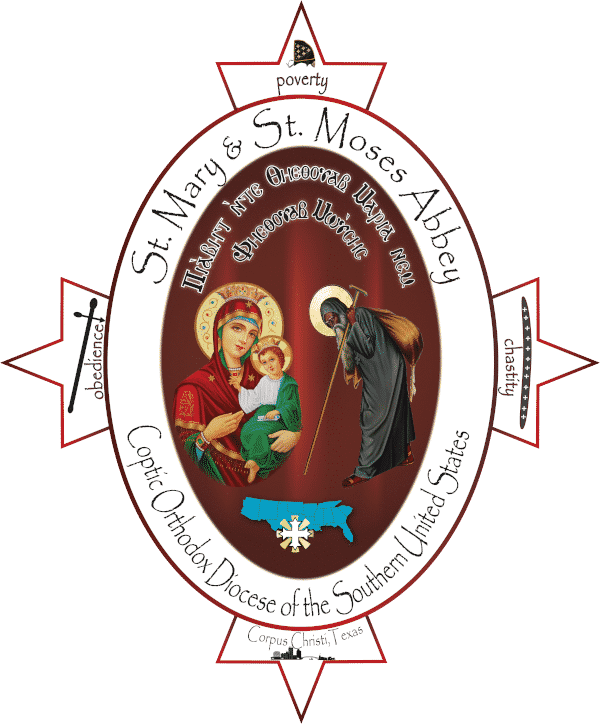Beginning on the first of Mesra (August 7th), the Church celebrates the fast of our Lady the Virgin, St. Mary. This fast is near to the hearts of the people and it is practiced with strict asceticism. Copts in Egypt, especially the women, care for the fast of the Virgin in a manner beyond description.
The fast of the Virgin is an occasion for spiritual revival within the Church. The Church prepares a spiritual program that includes daily sermons, praises and liturgies for the Virgin. In the ancient church of St. Mary in Mostorod, there is a great celebration for our Lady the Virgin.
There are many who fast the Virgin’s fast with water and salt or oil. Many add a third week to the fast, as a kind of a vow. There are also those who vow to fast this fast without eating or drinking until the appearance of the stars in heaven (sunset).
What then is the secret behind this care?
The main reason for this care is due to the love of the Virgin by the Copts for the she has visited and blessed Egypt numerous times beginning with Christ’s Flight into Egypt. The Virgin has left her traces in numerous places where churches have been built. In addition, many miracles have occurred in Egypt through the intercession of our Lady the Virgin. This has made many people enthusiastic in building churches dedicated in her name. The apparition of the Virgin in her church at Zeitoun, and the many miracles that accompanied this apparition, have certainly increased the affection of the Copts for the Virgin and for the fast which bears her name.
Her Feasts
Within the Coptic Church, each saint has one feast day dedicated to them within the Church. This day is the day of their death or martyrdom and not the day of their birth as their death marks their true heavenly birthday where they begin their eternal life with Christ. An additional feast day may be added for the discovery of the saint’s relics, for a miracle which was performed by this saint, or for the dedication of a church built for the saint.
The Holy Virgin St. Mary has many feasts within the Coptic Church, mainly:
- The feast of the announcement of her nativity (7th of Mesra): when the angel of the Lord announced to her father Joachim of her birth. Joachim and her mother Anna were filled with joy and they vowed to dedicate her to the Lord.
- The feast of her nativity which the Church celebrates on the 1st of Bashans.
- The feast of her entry to the Temple. The Church celebrates this feast on the 3rd of Kiahk. This is the day when she entered the Temple to worship God and dwelt in the sanctuary for 12 years.
- The feast of her arrival to Egypt (24th of Bashans) with Christ our Lord and St. Joseph the carpenter.
- The feast of the departure of the Virgin (21st of Tubah) commemorating the miracles which happened on the day of her departure surrounded by the apostles.
- The monthly feast of the Virgin (21st of every Coptic month) in commemoration of her departure on the 21st of Tubah.
- The feast of the ascension of her body to heaven (16th of Mesra) is celebrated on the 22nd of August which is preceded by the Fast of The Virgin (15 days).
- The feast of her miracle of the dissolving of iron (21st of Paona): On this day we commemorate her miracle in delivering the apostle St. Matthias, and those who were with him, from prison by dissolving the iron which bound them. Also, on this day we celebrate the feast of the building of the first church in her name in Philippi.
- The feast of her apparition in Zeitoun on the domes of the church of St. Mary. Her apparitions began on the 2nd of April 1968 (24th of Baramhat) and continued for many years.
The Holy Virgin Mary in the Church’s Faith
The Coptic Church honors our Lady the Virgin in due honor without exaggeration, and without lessening her position. She is, in the belief of the Church, the mother of God (Theotokos in Greek), and not the mother of “Jesus” as the Nestorians had claimed and were excommunicated at the council of Ephesus due to this heresy.
The Church believes that the Holy Spirit has sanctified the womb of the Virgin during her pregnancy with Christ. That was according to what the angel said to her “The Holy Spirit will come upon you, and the power of the Highest will overshadow you; therefore, also, that Holy One who is to be born will be called the Son of God” (Luke 1:35). The sanctifying by the Holy Spirit of her womb makes the One born of her to be conceived without the impurity of the original sin. As for the Virgin herself her mother Anna conceived her in the natural state, and so the Virgin said in her hymn: “my spirit has rejoiced in God my Savior” (Luke 1:47). That is why the Church does not agree that the Virgin was conceived without the impurity of the original sin as our brothers, the Catholics, believe.
The Church believes in the intercession of the Virgin. The Church places her intercession before the intercession of the angels and archangels, because she is the mother of God, the Queen who is seated at the right hand of the King.
The Holy Bible gives the Virgin the surname “filled with grace.” It is regrettable that the Beyrouth translation of the Bible lessens the status of the Virgin by translating this surname to “highly favored one.” All human beings are highly favored, but the Virgin is filled with grace although grace does not mean infallibility.
The Church believes in the perpetual virginity of St. Mary unlike our brothers the Protestants who claim that the Virgin gave birth to sons after Christ.
The Church believes in the Ascension of the body of the Virgin to heaven, and celebrates this feast on the 16th of Mesra. She endured a life of poverty. When she gave birth to her only Son, “there was no room for them in the inn”, and she “laid Him in a manger” (Luke 2:7). She endured these responsibilities at a young age. She endured the magnificent glory which surrounded her, without being harassed by the thoughts of greatness. It was not possible for her to declare that she had given birth to Christ while she was a virgin so she kept silent and endured this as well. She suffered the tiring voyage to Egypt and back. In Egypt, she suffered from being expelled from town to town as in every city they entered the idols would topple in front of the Christ (Is. 19:1). She endured suffering as a poor foreigner. She accepted that a sword would pierce through her own soul also (Luke 2:35) because of that which her Son met, the persecutions, the insults, and lastly the suffering and the shame of the cross. The Virgin was not satisfied only to endure negatively, but she lived in jubilation of the Lord as she said in her hymn: “my spirit has rejoiced in God my Savior” (Luke 1:47).
Feasts of other saints celebrated in these days include:
- In the same fast of the Virgin, we celebrate the feasts of the renowned saints: Saint Païsa (2nd Mesra, 6th August), Saint Julietta (6th Mesra, 12th August), and Saint Marina (15th Mesra, 21st August).
- We celebrate the feast of the Annunciation by Archangel Gabriel to Joachim, of the birth of The Virgin Mary on the 7th of Mesra (August 13th)
- On the 13th of Mesra (August 19th) we also celebrate the feast of the Glorious Transfiguration of Our Lord Jesus Christ.
- The feast of Saint George at the monastery in Mit Damsis is celebrated in the second half of August as well as the feast of Abba Macarius the Great, and the feast of Saint George in his monastery at Ruzeykat.

